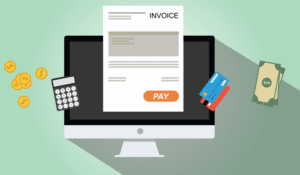Content

Another form of lien called judgement lien is a legal ruling that gives the right to creditor to have possession of assets of the borrower in case he or she fails to make payments. Most Organizations allocate budgets to their departments or divisions at the start of every fiscal year which is then used by individual departments to perform encumbrance accounting their operational activities. It becomes very important for the organizations to have robust budgetary control in Oracle Fusion in place to keep track and control the expenses. An encumbrance is a portion of a budget set aside for spending required by law or contract, but is not actually physically paid out yet, reports Accounting Tools.
This is to ensure that the organization has sufficient funds to meet anticipated payment obligations. Budgetary fund balance assigned for encumbrances, which is credited with the estimated cost of purchased orders placed and debited when the goods/services are received. Purchase order encumbrances are most commonly used in government accounting, but any organization can use the principle for https://www.bookstime.com/ budgetary control. Using encumbrance entries can serve as a general planning tool and can predict cash outflow. Encumbrance accounting helps your company with budget visibility and analysis by recording planned future payments. Rather than just looking at current transactions, this type of accounting encourages tracking upcoming expenses to help show a more detailed view of your cash flow.
Control your Budgets using Encumbrance Accounting in Oracle
It is important, from the buyer’s perspective, to be aware of any encumbrances on a property, since these will often transfer to them along with ownership of the property. An easement refers to a party’s right to use or improve portions of another party’s property, or to prevent the owner from using or improving the property in certain ways. For example, a utility company may have the right to run a gas line through a person’s property, or pedestrians might have the right to use a footpath passing through that property. Other encumbrances, such aszoning lawsand environmental regulations, do not affect a property’s marketability but do prohibit specific uses for and improvements to the land. Anderson is CPA, doctor of accounting, and an accounting and finance professor who has been working in the accounting and finance industries for more than 20 years.
What is the difference between encumbrance and accounts payable?
Encumbrances and Accounts Payable are two different concepts. Accounts Payable are amounts owed for goods or services received by the end of the fiscal period. Encumbrance accounts are budgetary accounts used to show obligated portions of appropriations.
Encumbrance accounting helps them reduce maverick spending and improve spend management, minimizing leakage of cost savings. It is also a term used by colleges and universities to describe limitations placed on a student’s account due to late payment, late registration, or other reasons stated by the institution. An encumbrance can prohibit students from registering for classes, affect the release of their transcripts, or delay the reception of their diplomas. Restrictive Covenant – A restrictive covenant refers to a contract in which a seller puts restriction for the buyer on how to use the land, and mentions the same in the deed of property of the buyer. For instance, the seller can specify a provision that asks the buyer to not make any amendments to a specific structure of the house or building. Such restrictive covenants don’t have any specific criterion, sometimes they can be to the point, and the other times, they can be based on personal choice.
What Does Encumbered Mean in Accounting?
We streamline legal and regulatory research, analysis, and workflows to drive value to organizations, ensuring more transparent, just and safe societies. Enabling tax and accounting professionals and businesses of all sizes drive productivity, navigate change, and deliver better outcomes. With workflows optimized by technology and guided by deep domain expertise, we help organizations grow, manage, and protect their businesses and their client’s businesses. Obligation – When a requisition is converted to a purchase order and the order is approved then commitment is replaced by an obligation. It is an obligation to pay the amount to the vendor against the goods and services ordered as per the purchase order terms and conditions.
- Encumbrance accounting primarily allows nonprofits and government organizations to record and monitor all future and planned expenses.
- Every vertical market has its unique business needs, requiring software partners to develop specific capabilities and solutions for industry.
- It gives a creditor the right to seize the property as collateral for an unmet obligation, usually an unpaid debt.
- Most Organizations allocate budgets to their departments or divisions at the start of every fiscal year which is then used by individual departments to perform their operational activities.
- For instance, the seller can specify a provision that asks the buyer to not make any amendments to a specific structure of the house or building.
When an encumbrance is established, the organization’s financial manager should ensure funds will be available for payment of the transaction, in accordance with the overall life-cycle of the contract. Encumbrance accounting primarily allows nonprofits and government organizations to record and monitor all future and planned expenses. Encumbrance accounting acts as a budgeting tool, resulting in more effective planning, allocating, and controlling their budgets.
What does encumbrance mean in banking?
Say, a utility firm has the authority to make a gas line pass through a particular property, or pedestrians having the authority to walk on a footpath built around the property. An easement in gross enables a person to gain benefits, and not the property owner. Say, if Jennifer has got the right to use the garden of her neighbor, she cannot transfer the same right to someone who buys her property. In case of a negative easement, the owner is not allowed to build anything that causes disruptions to the neighbors property.












